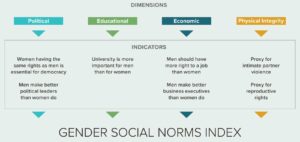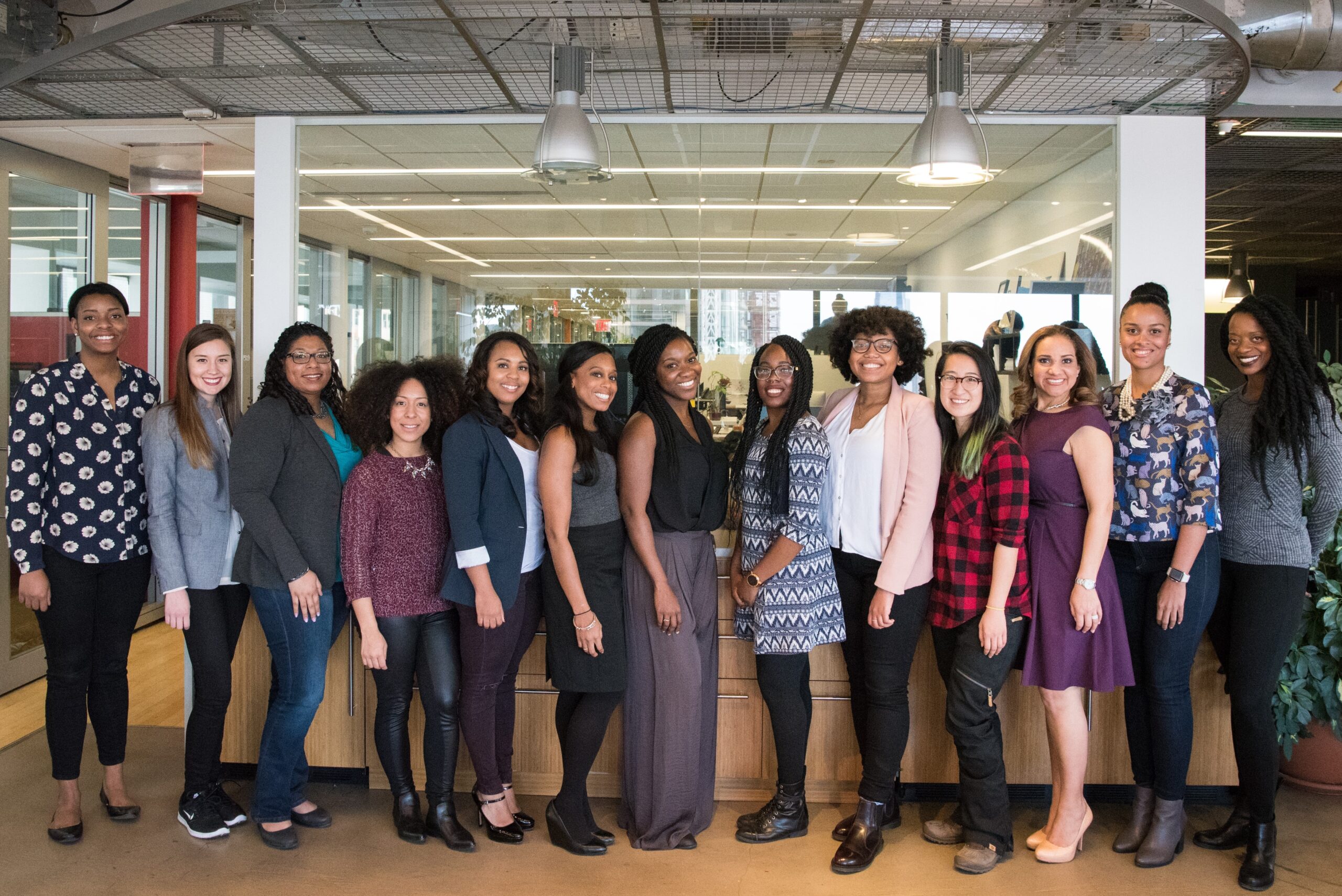It sounds shocking: 90 percent of the world population, including women, is biased against women, according to the latest UN Gender Social Norms Index (GSNI). But this representation of the facts is profoundly skewed. Yes, there is a lot of room for improvement. But there is no reason to despair. And the solution is obvious: stop making this about gender.
Nearly half of the world’s people believe that men make better political leaders than women do. Two in five believe men are better business executives. A quarter believe it is justified for men to beat their wives. Pretty awful statistics. ‘Even in countries with the least gender bias, more than a quarter of people have at least one bias, demonstrating that these biases hold across continents, income levels and cultures—making them a global issue,’ the GSNI report states.

The GSNI report has repurposed certain information collected by the World Values Survey, a 290-question survey taken in 91 countries over several years. It’s important to realise that this includes many countries where close to all people hold some bias against women.
The actual numbers show a more nuanced picture. For a start, in the Western, educated, industrialised, rich and democratic (WEIRD) countries, the bias is far less. Here, nearly half of the population (47.67% of the 14 countries I added up) has NO bias against women. Less than a quarter believe men are better qualified than women to be political leaders. That means three quarters think women are fine as leaders. Only 17,16% believe men should have more right to a job than women. That makes the vast majority in favour of equal economic rights. Likewise, 24% dismiss and 76% favour the right to physical integrity for women.
‘Biased gender social norms—the undervaluation of women’s capabilities and rights in society—constrain women’s choices and opportunities by regulating behaviour and setting the boundaries of what women are expected to do and be,’ says the report.
Telling
Yes, indeed. But there’s an undervalued point here. It’s telling that everywhere women hold the same biases as men at practically the same level. That implies that they themselves subscribe to ‘what women are expected to do and be’ in their own cultures.
I advocate equal rights for all genders. I also insist that we look beyond gender, which cannot explain everything. Norms and values are defined by culture and environment. So mine are likely to be different from those of a Kenyan or Guatemalan woman. In the privileged WEIRD world, where self-expression is one of the top values, gender equality is high on the agenda. In other parts of the world, feeding your children, surviving sky-high inflation, conflict or climate disasters is a lot more important. A focus on self-expression could jeopardise the survival of the group.
Throughout history and all over the world, threats to resources and the population — war, famine or disease — have triggered people to rally behind more authoritarian (male) leaders. Stricter norms and harsher punishment for those who deviate become a means to overcome scarcity and hardship. These strategies enable faster and more efficient cooperation – no questions asked – and implementation of life-saving measures. In other words, women who want either more rights or attention to their priorities run a high risk of being shoved aside by other women and men alike.
That’s why moving those numbers is not merely about gender: improving living conditions in the countries where women suffer, causing a rising sense of existential security, goes hand-in-hand with increased human autonomy, write the authors of the World Values Survey. Feeling safe produces ‘a humanistic culture of tolerance and trust, where people place a relatively high value on individual freedom and self-expression and have activist political orientations.’
Welcoming
My argument – which is at the heart of my new book, We-Mind vs. Me-Mind [Link] – is that for this to be achieved we need to redefine what we think of as success, not least in the still all-powerful West. Currently, we only value and reward what I call ‘Me-minded’ priorities, like self-expression, profit, and getting ahead. We need to make success more about We-mindedness: prioritising the well-being of the group, the survival of the planet even if that is at the expense of our own interest or quick wins.
We all have both minds, but most men (not all!) lean towards the Me-mind, most women toward the Me-mind. Once Western leaders learn to tap into their We-mind and discover all that it offers, the professional world will automatically be more welcoming to women.
A last word on bias. Question 29 in the World Values Survey asks respondents to rate the statement ‘On the whole, men make better political leaders than women do.’ Question 31 rates ‘On the whole, men make better business executives than women do.’ Etcetera. I wonder what the outcome might have been if people were asked to rate ‘women and men both have the qualities to be good leaders’? Or, instead of rating ‘Being a housewife is just as fulfilling as working for pay’ (Q32), ‘Looking after your family is just as fulfilling as working for pay’. Or instead of ‘When jobs are scarce, men should have more right to a job than women’ (Q33), ‘when jobs are scarce, the partner in a couple who earns most should have more right to a job.’
As long as we keep measuring the world by what ‘men’ can, should or shouldn’t do or think, we keep perpetuating the bias that theirs is the golden standard for success. Not only do we make it impossible for women to ever achieve success, because we cannot be men, but we also keep undermining our own sense of worth. As soon as we start valuing ourselves just the way we are, others will start doing so too.
You can preorder your copy of ‘We-mind vs. Me-mind: A New Vision for Success in Leadership and Life’ here.

